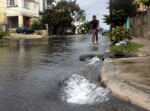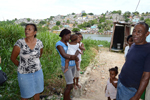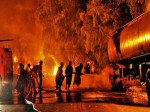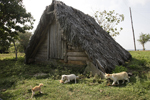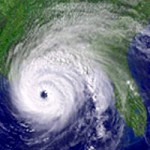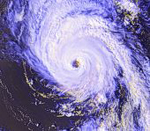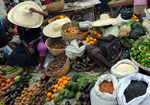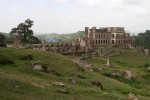Disparate Impacts of Isaac on Haiti, the Dominican Republic, and Cuba | Isaac desnuda vulnerabilidades caribeñas
By Patricia Grogg, IPS. The impact of Hurricane Isaac in the Caribbean region highlighted both the fragility of some countries in the face of extreme meteorological events, which are expected to become more intense, and the different strategies adopted to mitigate the risk of disasters. (English | Spanish)
Continue reading →
